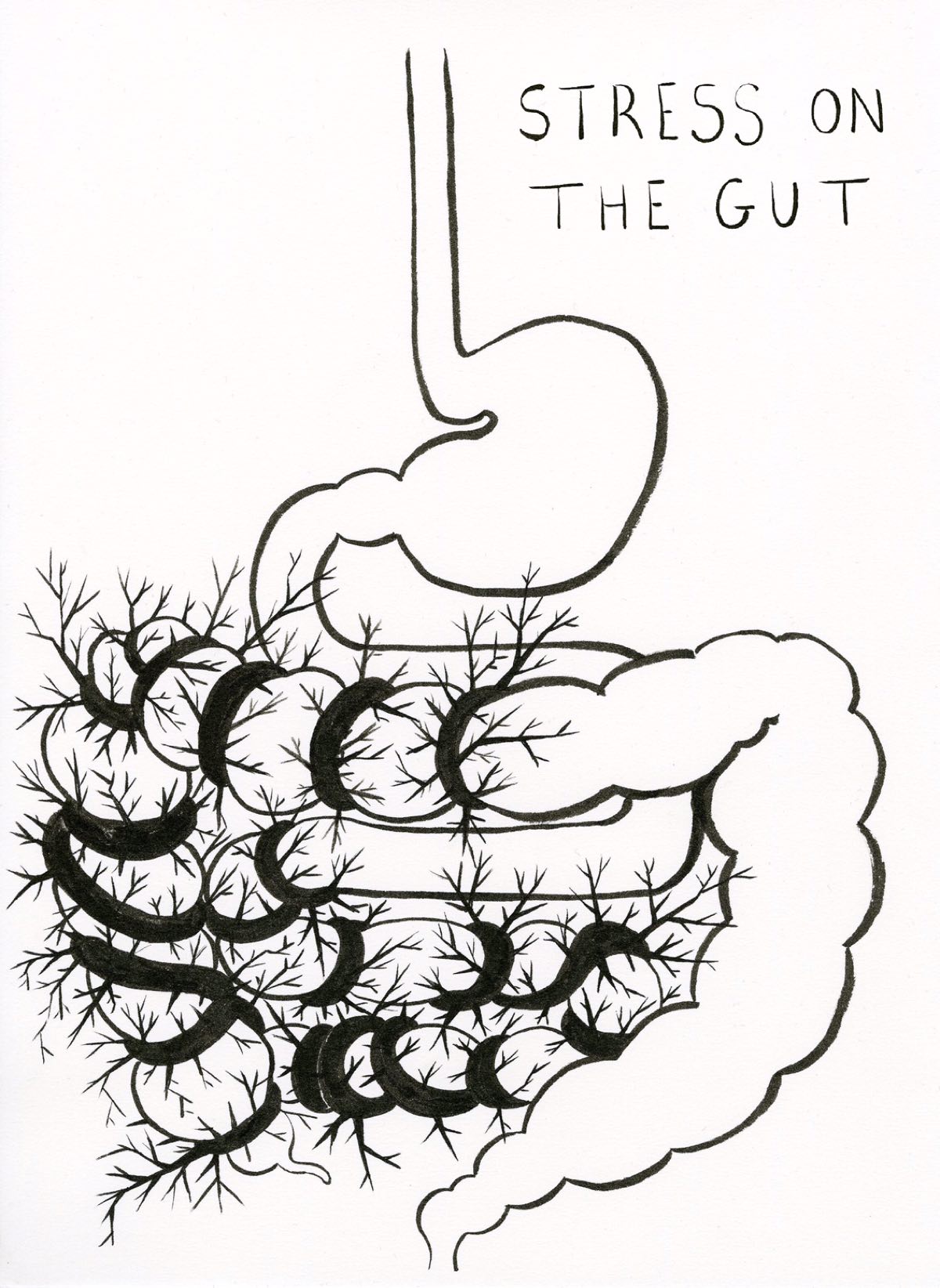Too much stress, lack of sleep and an unhealthy biome are all interlinked.
Stress makes you sleep badly and eat badly, which encourages the growth of ‘bad’ microbes in your gut. To make things worse, chronic stress has a direct impact on the health of the lining of your gut, causing problems such as inflammation, overgrowth of the ‘wrong’ microbes and leaky gut where the protective lining is no longer functioning as it should. These exacerbate symptoms of diarrhea and/or constipation, bloating, malaise and can further reduce mood and motivation – a horrible, vicious cycle.

What can we do to reduce stress?
There are all sorts of things that you might try to help reduce and manage stress, such as meeting a friend for a chat, catching up with family or old friends, doing more exercise, going out for walks, scheduling activities you would normally enjoy and just doing it even if you don’t really feel like it. It helps to build in small things to your that you enjoy and look forward to. It may involve looking at the balance of your life and addressing issues that may be contributing.
However, one of the most effective ways to cope with stress, especially chronic stress, is to practice mindfulness. Regular practice has been shown to be the best treatment for recurrent depression and anxiety, and even more effective than medication (though they also work well together). It is particularly helpful for those with a very active mind and a tendency to over-think and ruminate about problems.
You can learn how to practice mindfulness by doing a mindfulness course in a group, on a DVD or online/via an app. There are lots of good versions available. We usually recommend the Headspace app.
Getting a good night’s sleep can also help reduce stress.
Tips for getting a better night’s sleep:
Studies have shown that changing your biome can improve your sleep. For example, there is now evidence to suggest that consuming more of certain types of plant fibre known as prebiotics, particularly galacto-oligosaccharides, which increase levels of healthy bifidobacterial in the gut and can help you sleep better. This can be taken as a food supplement. Other tips include:
- Set your alarm clock to wake you up the same time every morning.
- Try to go for a walk in the morning to reset your melatonin levels.
- Do some exercise during the day.
- Prepare for sleep at least 90 minutes before you go to bed.
- Avoid watching TV, being on your phone or social media in the run up to bedtime.
- Cut down on late night boozing. Alcohol may help you go to sleep but it will also ruin your REM sleep.

